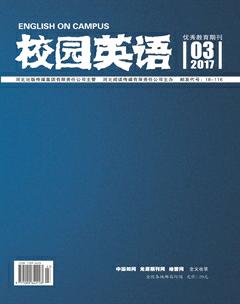The Debate about the Poverty of the Stimulus Argument
程欢
【Abstract】Chomskys language talent theory believes that language learners will eventually acquire language and gain the language competence truly rely on the language talents. The poverty of stimulus argument and the story of the wolf child are introduced in this paper so as to have a better understanding of the controversies involving in the nature of the language acquisition.
【Key words】the poverty of stimulus argument; language acquisition; language talent
1. Introduction of the Wolf Child Story
In 1920, an India missionary named Singh found “wolf child” in the vicinity of the termite hole. He sent them to the orphanage. According to Singh, when the two wolf children just returned to the human society, they have obvious animal behavior: eating raw meat, crawling on all fours. Being afraid of the dark light and the daytime curling up to the dark corners, at night in the hospital, wandering around the dawn time to howl wildly. When others dress them, they rudely tear up the clothes. They are eagle-eyed, keen sense of smell, but not to talk. The Singh couple made various attempts to make the two wolves children turn into true human. After staying in human society for two months, one wolf child can send out “wave-like sounds”, complain of hunger and thirst. Unfortunately, after coming to the human society for 11 months, he died. As for the other wolf child, after four years training, he just only masters six words; For nearly five years he understands how to walk with two steps, however, running fast and only use the limbs. After five years, she can take care of young children .She died until 17 years old. But until her death, she even didnt acquire the human language. Her mental ability is still under the age of 3 or 4 years old.
2. The Stimulus Argument and the Wolf Child Story
In linguistics, the poverty of the stimulus argument is the assertion that natural language grammar is unlearnable given the relatively limited data available to children learning a language, therefore, knowledge is supplemented with some sort of innate linguistic capacity.
According to this argument, although Language input is incomplete, insufficient, but in the end people can master a set of rich and complicated language knowledge system, eventually gain the knowledge of the language.
And the differences between language input and language knowledge made the linguists to believe that language acquisition comes from natural language mechanisms, namely the universal grammar, which guided children to overcome the defect of language input to smoothly grasp the language.
Nativists claim that humans are born with a specific representational adaptation for language that both funds and limits their competence to acquire specific types of natural languages over the course of their cognitive development and linguistic maturation. The argument is now generally used to support theories and hypotheses of generative grammar.
3. Conclusion
Chomskys theory of language talent is developed on the basis of the poverty of the stimulus argument. This theory has a very important status in the theory of language talent. And the Wolf child example also refuted the theory of Chomskys language talent, proving the importance of the environment. If according to the theory of Chomskys language talent, there is a set of universal grammar in the wolf child mind. However, since there is no external environment Excitation, Wolf child will not talk until later there is constantly input, she can speak a few words. It shows that ignoring the influence of the environment, the language talent theory also will be an extreme. Thus it can be seen that both the stimulus-response theory and the theory of language talent cannot fully explain all the problems in language acquisition. The process of human language acquisition requires a combination of both. So we can say that the Human language System is complex, the acquisition of language is also a very complex process, we cannot use one or two theory to illustrate it, certainly there will be more Language learning mechanisms and theories for us to find. To this, we should have a dialectical view of the language problem.
References:
[1]杨小璐.关于刺激贫乏论的争论[J].Foreign Language Teaching and Research(bimonthly).
[2]魏連连.语言习得:刺激反应与语言天赋的结合.
[3]郑晓行.语言研究的乔姆斯基时代该终结了——从刺激贫乏论说起[J].语文学刊,2015.

